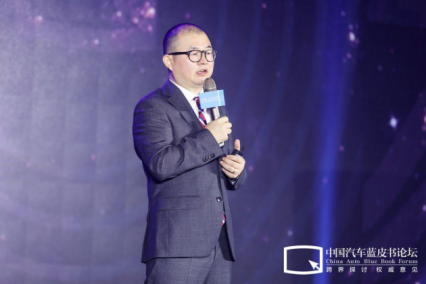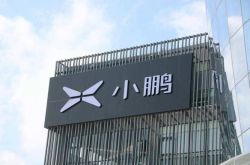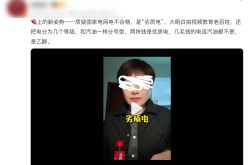"Involution" Blocking the Globalization of Chinese Automobiles? Jia Ke's Statement Sparks Controversy
![]() 06/24 2024
06/24 2024
![]() 602
602
What challenges will Chinese automobiles encounter when going global? The answer given by Jia Ke, the chief editor of Auto Business Review, is that Chinese automobiles are too internally competitive.
At the recent "China Automotive Blue Book Forum," Jia Ke, as a representative of the organizer, discussed the recent heated industry debate on the EU's tariff increase on Chinese electric vehicles during the speech segment. Jia Ke said, "The industry's internal competition is too fierce, so if we continue like this, we will block our own path to globalization."

Jia Ke's statement quickly sparked industry controversy. Many netizens directly pointed out in the comments that, as a member of the Chinese automotive industry, Jia Ke's attribution of the tariff increase to internal competition among Chinese enterprises is incredible.
Jia Ke believes, "If we consider the foreign market as an orderly competitive market, we should not break this order but instead occupy a place in it through technology and better cars."
Obviously, focusing on product strength to open the market is the only way for Chinese automobiles to go global. However, deeply cultivating product strength is not contradictory with "breaking the order." In fact, throughout the more than a hundred years of development history of the automotive industry, the shift of the automotive industry center from Europe to the United States and then to Japan has almost always been accompanied by the reshaping of the order. Achieving the transformation and upgrading of the automotive industry without disrupting the old order is almost impossible.
For Ford in the United States, the new order was the industrial assembly line of the Model T; for Toyota in Japan, the new order was the lean production model with lower costs and higher efficiency. For China, the new order led by Chinese automobiles is still being shaped, but it is clearly not something that can be summarized simply as "involution."
Jia Ke's above statements inevitably raise doubts. As a veteran media figure in the automotive industry for over two decades, why does he have such a significant misjudgment about industry development?
Perhaps, Jia Ke's "misjudgment" of the industry has its reasons. In his speech, Jia Ke viewed "involution" as a cancer in the development of the Chinese automotive industry. Although he did not directly name names, his words almost all insinuated BYD. In the eyes of many viewers, Jia Ke's "misjudgment" was false, and his real intention was to criticize BYD.
So when did the rivalry between Jia Ke and BYD begin?
In 2016, BYD encountered an unexpected incident. That year, Taiyuan, Shanxi, replaced all its taxis with electric vehicles, becoming the first city in the world to fully implement the "electrification of taxis." Winning the Taiyuan taxi market was crucial for BYD, but in April of that year, a news report caused widespread panic among BYD and the public.
According to multiple media reports, a taxi driver in Taiyuan, Shanxi, died unexpectedly in a BYD electric vehicle due to being "electrocuted by the electric car." Almost all media reports attributed the source to Jia Ke's WeChat Moments. Shortly after the incident, Jia Ke posted rumors on his WeChat Moments and confidently claimed that the driver was "electrocuted."
At that time, the public's understanding of electric vehicles was far inferior to today, and many people still had doubts about the safety of electric vehicles. Jia Ke's statement quickly ignited public insecurity about electric vehicles. However, soon after, the Taiyuan police issued a clarification, stating that the taxi driver's death was due to "sudden death due to illness" and had nothing to do with the vehicle.
There are rumors in the industry that after the above-mentioned incident, BYD has chosen to report it to the police and plans to hold it accountable. After learning about it, Jia Ke contacted BYD officials through various connections, hoping to handle it in a low-key manner. In the end, Jia Ke apologized in the Automotive Business Review magazine and website, and BYD did not continue to pursue Jia Ke's related responsibilities.
Jia Ke, who was once "let go" by BYD, seems unwilling to "let go" of BYD nearly a decade later today. Recently, Jia Ke has criticized BYD's business model insinuatively through multiple articles, even labeling it as "poisoning" and "lawless".
However, while criticizing others for being "lawless", Jia Ke and the Automotive Business Review themselves seem to have not adhered to their bottom line.
In August 2023, departments including the Propaganda Department of the Central Committee and the Cyberspace Administration jointly issued a document requesting the strengthening of standardized management of forum activities, and clearly stated that forum activities should not be arbitrarily labeled with words such as "China" or "China". But even today, the "China Automotive Blue Book Forum" hosted by Jia Ke still uses the name "national prefix".
Prior to this, Jia Ke's "Xuanyuan University" was also highly controversial. In 2021, the Ministry of Education and eight other ministries issued a document requiring the cleaning and rectification of organizations that use illegal names such as "universities" and "colleges" among the public. Except for public institutions approved by the central and provincial governments in accordance with the law, other individuals and organizations are not allowed to establish organizations under the names "universities" and "colleges".
But it seems that Jia Ke did not seriously implement this document requirement. According to a report by Upstream News that year, some citizens complained to Upstream News that Xuanyuan University was suspected of violating regulations and had not changed its name. It is reported that the tuition fee for "Xuanyuan University" is as high as 100000 yuan per year, and the main "students" who register are almost all executives from the upstream and downstream of the automotive supply chain, while the "teaching teachers" are mostly executives from the main engine factory. Some automotive professionals have pointed out that such a business model provides opportunities for OEMs and supply chain enterprises to connect, and there is a lot of water in it.
Nowadays, "Xuan Yuan University" has been renamed "Xuan Yuan Zhi Xue", but its business model itself has not changed. The "Xuan Yuan Award", "Jin Xuan Award" and other awards launched by the Automotive Business Review seem to follow the same model as "Xuan Yuan Learning" - some popular models that are widely recognized by the market almost never make it to the list, while some obscure models dominate the list year by year. This can't help but make people wonder whether such rankings rely on strength or "money ability"?
Perhaps Jia Ke, who has been struggling in the automotive industry for many years, is already familiar with how to win over wealthy individuals with the ability to make money, but has forgotten to adhere to the bottom line that media professionals should adhere to. Just like the name of the magazine founded by Jia Ke, what he should do is to publish truly valuable automotive business reviews, rather than relying on commercial cooperation to freely comment on Chinese cars.





